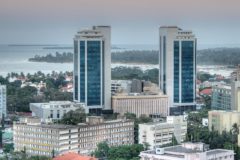Bolt Kenya’s operating licence has been renewed for another year. This is after the ride-hailing platform met some demands by a local transport authority.
After fulfilling demands from the National Transport and Safety Authority (NTSA)
Secondly, Bolt has dropped booking fees, which the NTSA called “illegal” since they are not included in the NTSA (Transport Network Companies, Owners, Drivers, and Passengers) Regulations, 2022. “The booking fee, which has now been suspended pending further clarification with NTSA around the interpretation of the regulation on this particular matter, was a service fee levied directly to passengers using our platform. Therefore, the booking fee did not in any way affect the drivers’ take-home earnings,” the country manager added.
The 5% booking charge issue was controversial, and drivers rejected it because it was introduced after the state reduced the commission to a standard of 18%. While riders covered it, it still meant that Bolt’s earnings remained at 23%, which is higher than the initial 20% commission before the reduction.
Lastly, Bolt has set up a driver engagement centre to “enhance its driver relations and address issues faced by drivers in their daily operations,” according to a statement from the company. This has been one of the most contentious issues, as Bolt drivers did not have access to a physical Kenyan office to voice their grievances.
Bolt plans to expand its turf in the African market in 2024 with a €500 million investment. A fifth of that amount will be dedicated to the Kenyan market, where the company operates in 16 towns and cities with about 50,000 driver partners.





















